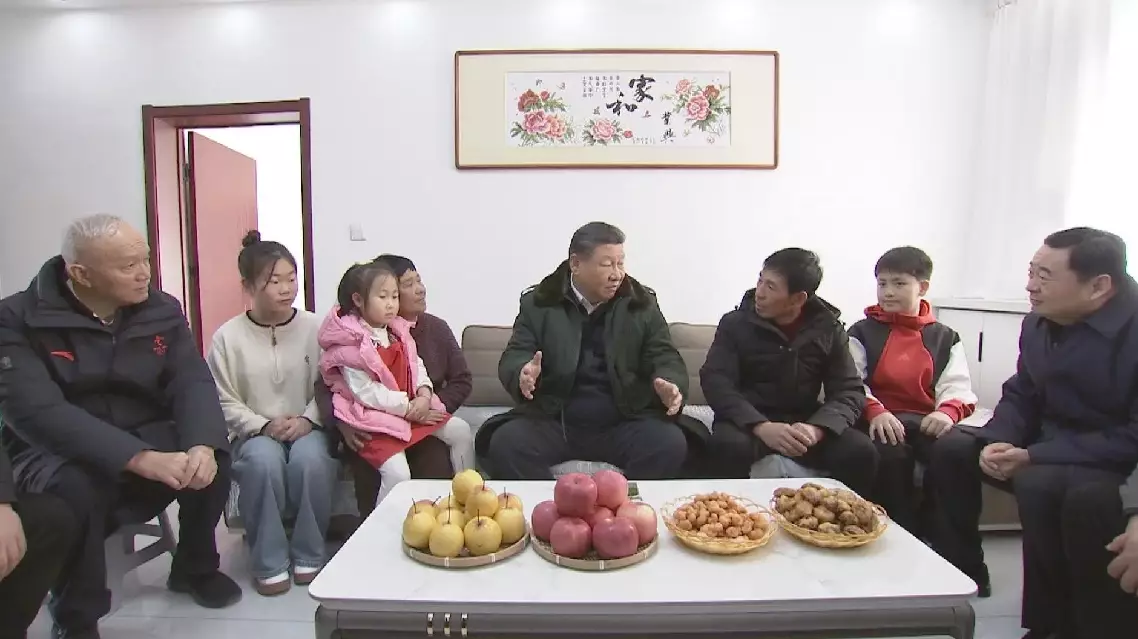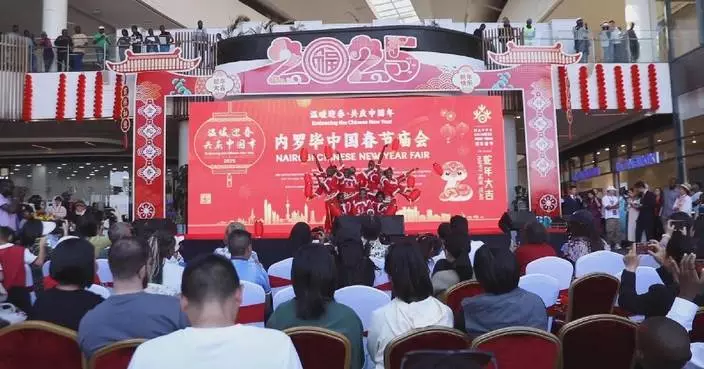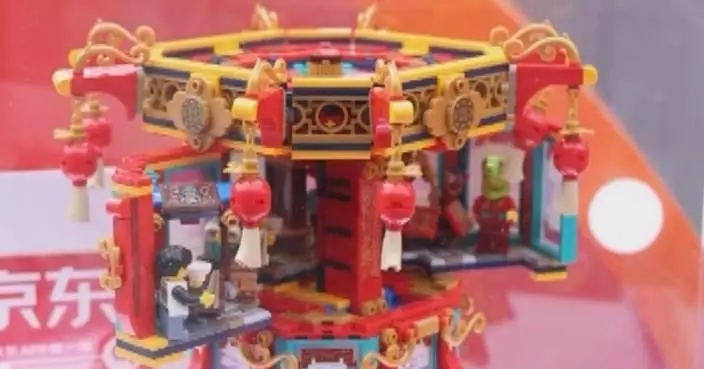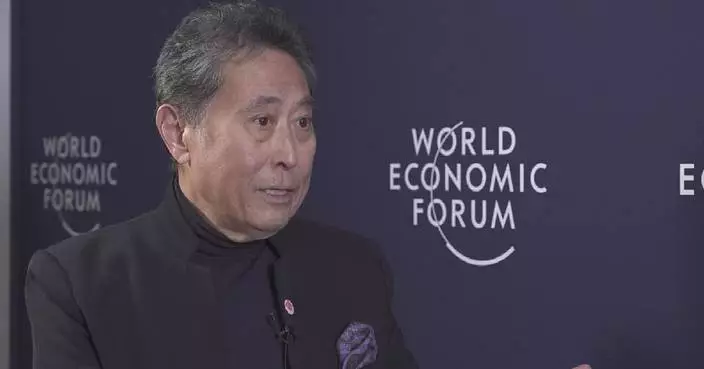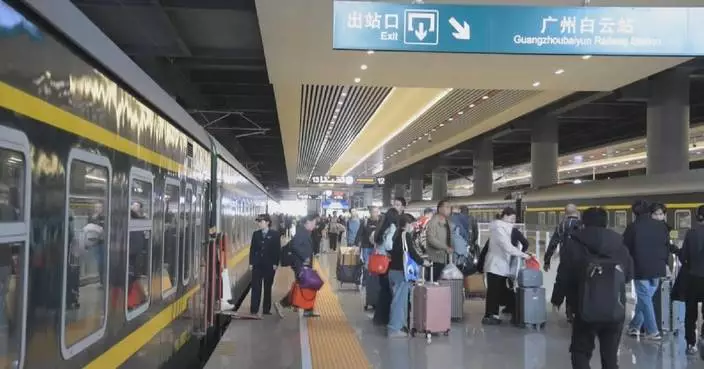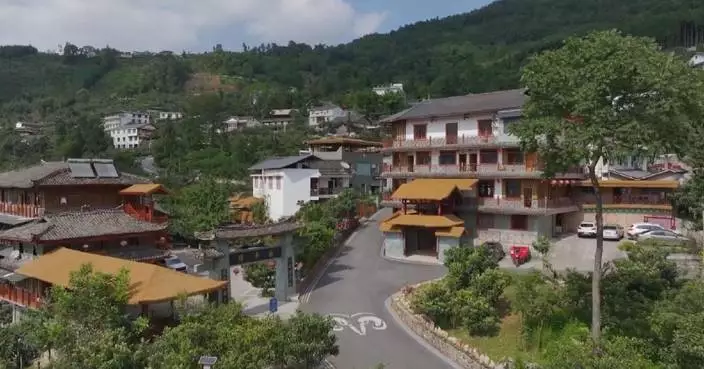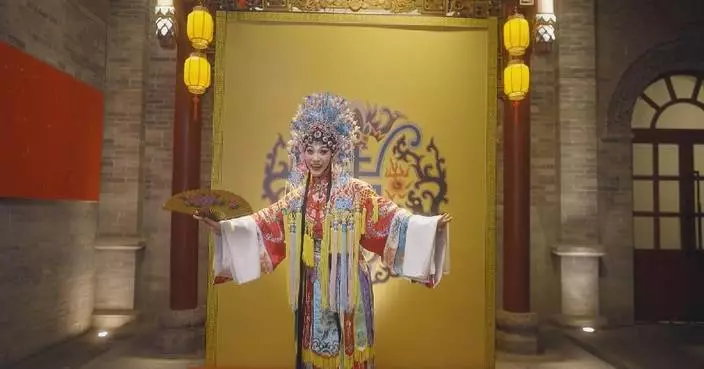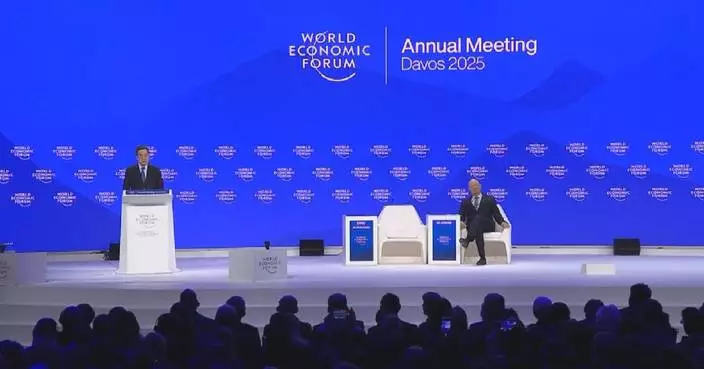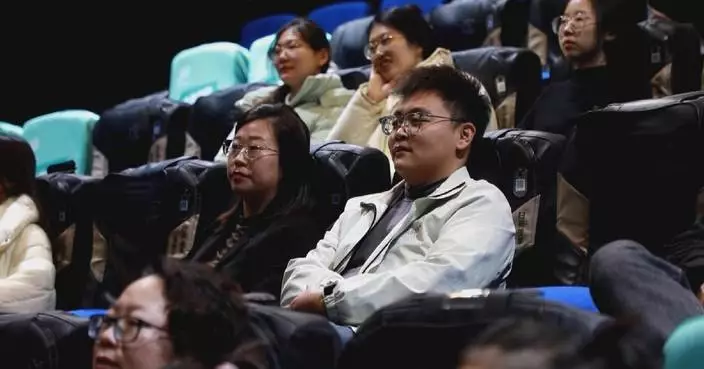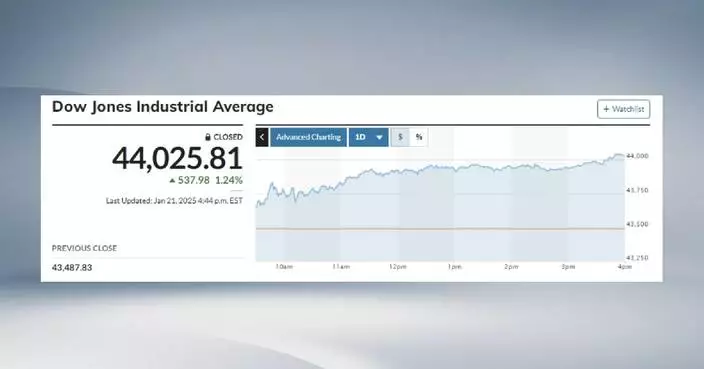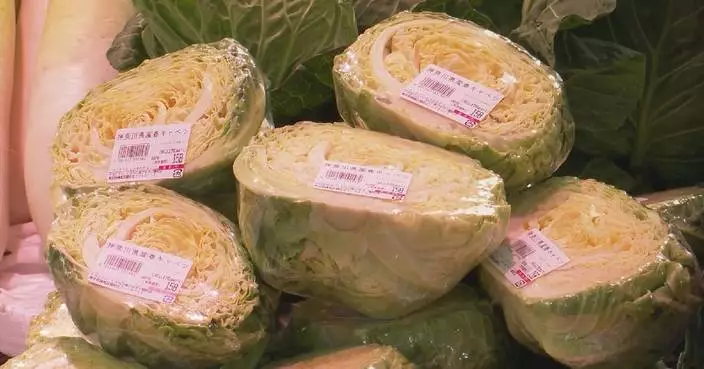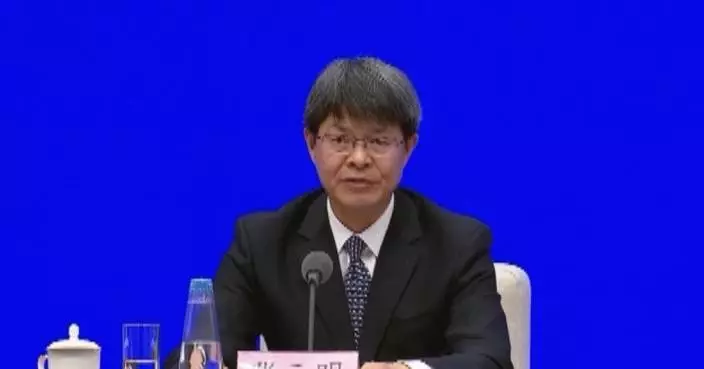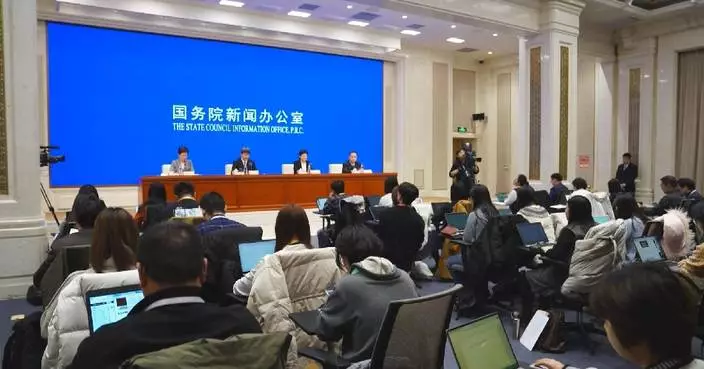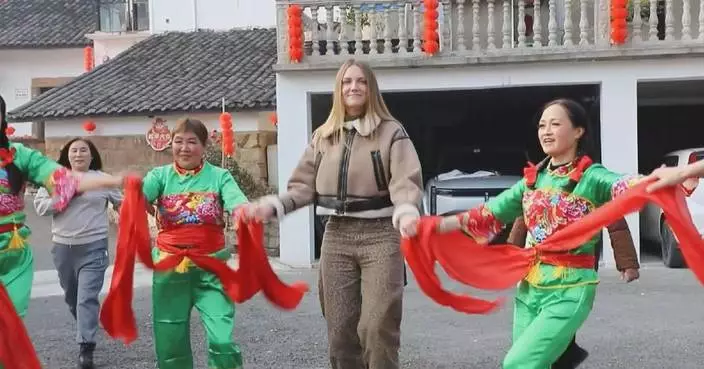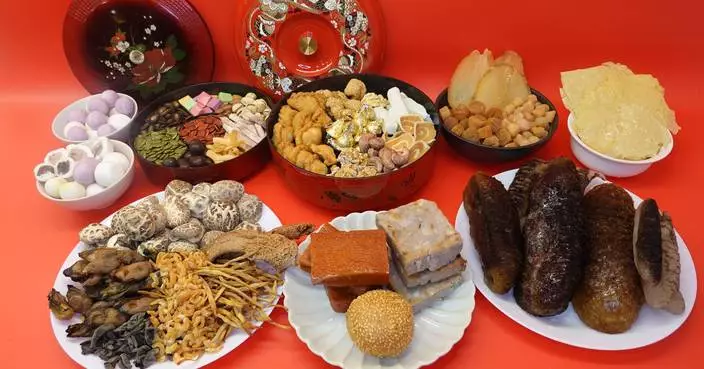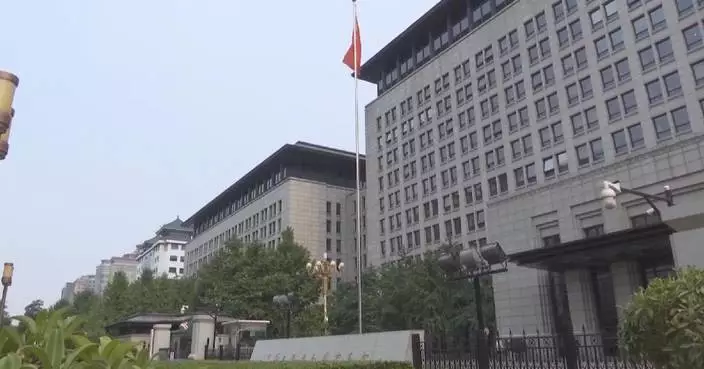The "new quality productive forces," including the latest technology of artificial intelligence (AI) and cloud computing, has enabled China's enterprises to upgrade their industry, from foreign trade to manufacturing and logistics.
Last year, a U.S.-based blogger spent 600 U.S. dollars on a Chinese-made electric tricycle, attracting considerable local attention. Many believe this is due to China's long-standing manufacturing advantages, which is true, but it also reflects the rapid development of cross-border e-commerce in the country.
For Jinpeng Group, one of the manufacturers of light electric vehicles for export, cross-border e-commerce has made business much easier.
"When we first started exporting our products overseas in 2017, there were only 5 people on the team. We had to go abroad to look for customers and it took some time to get a visa. Can you imagine our founder was also in charge of some translation work and packed products himself? Now, our team has over 100 employees, with cross-border e-commerce platforms, we reach out to customers and communicate with them directly online, which is way more efficient," said Hou Dafu, brand promotion engineer of Jinpeng Group.
New Chinese cross-border e-commerce platforms have streamlined operations, offering comprehensive services from product listing to international marketing.
Platforms like Alibaba.com integrate AI tools for translation, product optimization, and targeted promotions, empowering small and medium-sized enterprises to engage in global trade seamlessly from home.
"At present, cross-border e-commerce platforms now handle all export procedures like customs clearance and logistics. Merchants simply send products to the platform's domestic warehouse. They maintain ownership and control of their store and goods while benefiting from managed services like operations, logistics, and after-sales support. This setup reduces costs and simplifies international expansion for small and medium-sized enterprises. Foreign consumers gain confidence with platform endorsements, enjoying convenient door-to-door delivery," said Chen Qiang, vehicle industry leader of Alibaba International Station
In terms of manufacturing, technological innovation has significantly improved the efficiency and product quality of Chinese manufacturers.
As the world's largest lithium-ion battery producer, CATL now owns three "lighthouse" factories, which are recognized by the World Economic Forum with Industry 4.0 technologies. They can produce a cell in an average of one second and a battery pack in 2.5 minutes.
One of the factories produces about 200,000 battery cells daily and has already reduced its failure rate to PPB level. This means that only one in a billion units is defective, which is among the top in the industry.
"Extreme manufacturing requires core technologies including smart technologies to achieve our strict requirements. For example, CATL uses an ultrathin copper foil measuring only 4.5 microns in the coating of their battery cells, which is thinner than the average 6-micron commonly used in the industry. Our cell to pack technology eliminates the module structure by directly assembling the battery with the cell. This innovation improves the energy density of the battery," said Ma Lin, deputy director of CATL Intelligent Manufacturing Department.
In the logistics industry, China is now the largest logistics market in the world, and 70 percent of freight is transported by road.
Guo Dongchu, a truck driver with over two decades of experience, now benefits from the world's first mass-produced autonomous driving system installed in his truck.
"Autonomous driving is so relieving, compared with manual driving. I no longer have to keep my foot on the brake and hand on the stick," he said.
Inceptio Technology is a company focusing on promoting autonomous driving on trucks, which its founder Julian Ma said will have a profound impact on the logistics industry.
Ma said his company has launched the industry's first mass-produced L3 autonomous trucks in partnership with China's leading OEMs (original equipment manufacturers). These trucks are being used nationwide by customers in the line-haul logistics sector.
"On average, this technology can achieve a saving on the per mile basis of between five to seven percent. This is a huge number. We all know that logistics is a very cost sensitive industry, right? Even one percent is very hard to achieve in terms of saving," Ma said.
And China's autonomous driving efforts are comprehensive, not only in vehicles, but also in policies, laws, technologies and infrastructure.
"We get rich data from China's complex logistics environment and diverse operational scenarios, and from simulation as well. In this perspective, China is at a relatively leading position in terms of intelligent driving technology," said Liu Yuhang, director of China Logistics Information Center
Last September, east China's Jiangsu Province built China's first intelligent expressway that supports vehicle-road cooperative autonomous driving at Level 4 automation.
On a trial run in May this year, a fully-loaded hydrogen-powered autonomous truck traveled from Beijing to the Port of Tianjin. The entire journey was completed without any manual intervention.

New quality productive forces upgrade China's enterprises



